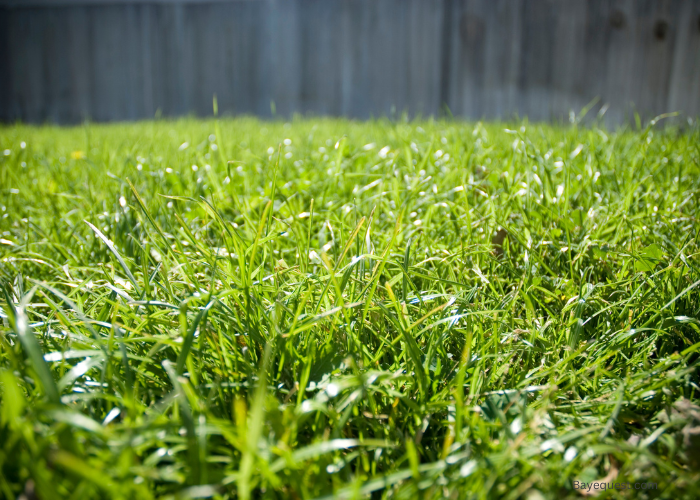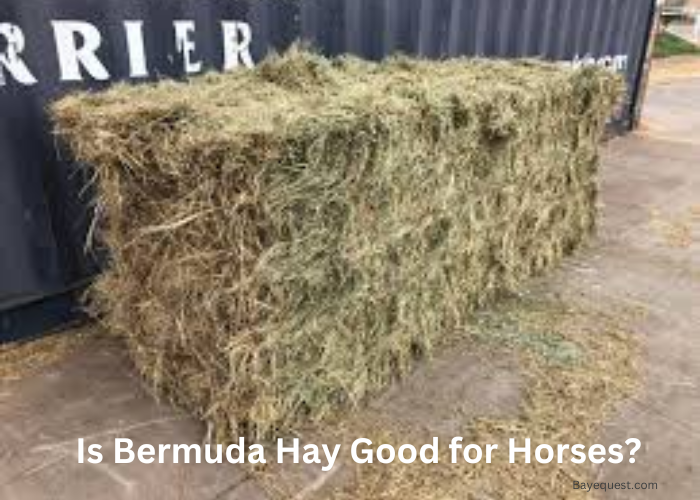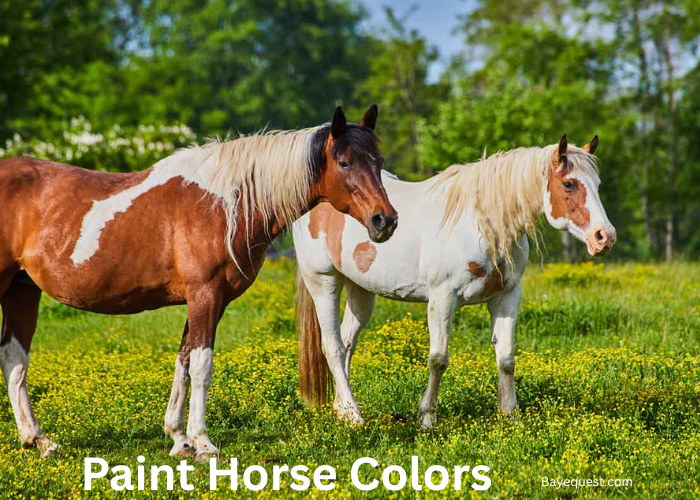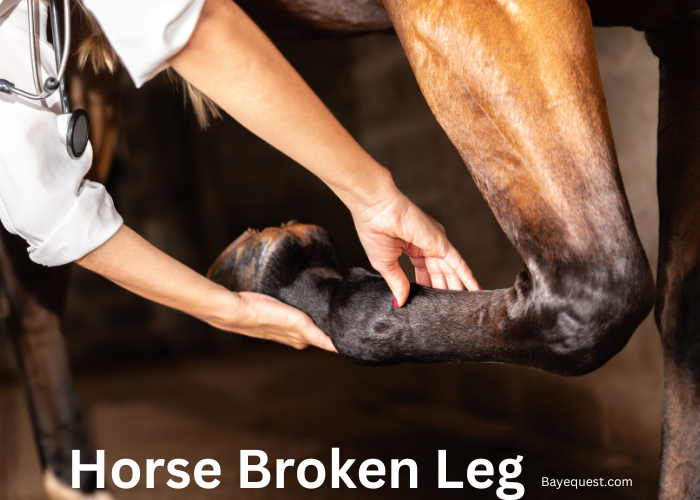Bermuda hay is a popular choice for feeding horses, but is it the right option? Horse owners often look for hay that balances nutrition, digestibility, and affordability.
Bermuda hay is widely available and has some great benefits. However, it also comes with specific considerations.
Feeding your horse the right type of hay is essential for their health and performance.
This blog explores the pros and cons of Bermuda hay, helping you make an informed decision.
Let’s dive into what makes Bermuda hay a good or not-so-good choice for your horse.
Is Bermuda Hay Good for Horses? Key Takeaway
Yes, Bermuda hay is good for horses. It’s high in fiber and low in calories, perfect for easy keepers. The soft texture makes it palatable and easy to chew. It supports gut health but should be fed carefully to avoid colic. Always choose fresh, clean hay for the best results.
What is Bermuda Hay?
Bermuda hay is a type of hay that comes from Bermuda grass, a warm-season perennial grass native to the tropical and subtropical regions.
With its fine texture and dense growth, Bermuda hay is a popular feed choice for horses.
Bermuda hay is grown primarily in the southern United States, where the warm climate supports its growth. It is harvested at different stages of maturity, which affects its nutritional content.
When cut early, it tends to have more nutrients and be softer. It’s rich in fiber, essential for a horse’s digestive health, and provides moderate levels of protein and energy.
This makes it suitable for many types of horses, from those in light work to those needing maintenance feed.
Overall, Bermuda hay is appreciated for its palatability and nutritional balance.
Is Coastal Bermuda Hay Good for Horses?
Yes, Bermuda hay is good for horses. It’s tasty and easy to eat, and horses love it.
Bermuda hay has lots of fiber. Fiber is good for digestion. It helps keep your horse healthy.
This hay has enough protein, too. Not too much, just enough. It’s great for horses that don’t work too hard.
But there are things to watch out for. It can get dusty. Dust isn’t good for horses.
Always choose clean hay. Sometimes, Bermuda hay can cause colic. Make sure your horse has plenty of water.
In short, Bermuda hay is a good choice. It’s nutritious, and horses like it. Just keep an eye on quality. Your horse will thank you.
Nutritional Benefits of Bermuda Hay for Horses
These are the nutritional benefits of Bermuda Hay:
| Nutrient | Benefit |
| Fiber | Aids digestion, prevents colic, promotes healthy gut function |
| Protein | Supports muscle maintenance and repair, suitable for light to moderate work |
| Energy | Provides steady energy, ideal for maintenance horses |
| Vitamins | Contains essential vitamins for overall health |
| Minerals | Supplies vital minerals like calcium and phosphorus |
| Palatability | Highly palatable, encouraging consistent consumption |
Drawbacks of Bermuda Grass for Horses
Here are some drawbacks of Bermuda hay:
1. Dustiness. Can be dusty, causing respiratory issues in horses.
2. Nutritional variability. Nutrient content can vary based on harvest time and quality.
3. Impaction colic risk. Higher fiber content can sometimes lead to impaction colic if not fed adequate water.
4. Lower protein. Lower protein levels compared to other hays like alfalfa, which may not meet the needs of high-performance horses.
5. Seasonal availability. Availability can be limited to certain seasons, affecting consistent supply.
Comparison With Other Types of Hay
Curious how Bermuda hay stacks up against Timothy, Alfalfa, and Orchard grass? Let’s dive into a quick comparison to find out.
Bermuda grass hay vs Timothy hay
Bermuda hay has a fine texture, while Timothy hay is coarser. Bermuda hay offers moderate protein levels, whereas Timothy hay provides slightly higher protein.
Both types are rich in fiber, promoting healthy digestion. Timothy hay tends to be less dusty, making it better for horses with respiratory issues.
In warmer climates, Bermuda hay is often more affordable, while Timothy hay can be pricier.
Both are nutritious and palatable, so choose based on your horse’s specific needs and what’s available locally.
Bermuda vs Alfalfa hay
Bermuda hay is lower in protein compared to Alfalfa hay, which is very high in protein. Alfalfa hay also contains more calcium.
This makes Alfalfa ideal for growing, lactating, or high-performance horses. Bermuda hay, on the other hand, is great for maintenance diets as it’s easier on the stomach.
Alfalfa can be too rich for some horses, while Bermuda offers a balanced, moderate nutrient profile.
Both are palatable, but the choice depends on your horse’s dietary requirements and workload.
For more details on Alfalfa, check out our article “Is Alfalfa Good for Horses?”
Bermuda grass hay vs Orchard grass hay
Bermuda hay is finer and denser, while Orchard grass hay is softer and leafier. Both types provide excellent fiber content.
Orchard grass hay has slightly higher energy levels and more protein than Bermuda hay. Both are suitable for most horses and promote healthy digestion.
Orchard grass hay is often less dusty, which benefits horses with respiratory issues.
Bermuda hay is more common in warm areas, while Orchard grass is more available in cooler climates.
Both are nutritious and tasty, so the choice can be based on your horse’s preference and local supply.
Read also: Difference Between Hay and Haylage.

How to Choose Quality Bermuda Hay
Choosing quality Bermuda hay is crucial for your horse’s health. Here’s how to make the best choice:
1. Look for bright green color
Good Bermuda hay should be bright green. This color indicates freshness and high nutrient content. Avoid hay that looks brown or yellow.
2. Check the texture
Quality Bermuda hay has a fine, soft texture. It should not be too coarse or brittle. Soft hay is easier for horses to chew and digest.
3. Smell the hay
Fresh Bermuda hay should have a clean, sweet smell. Musty or moldy odors indicate poor quality or improper storage.
4. Avoid dust and mold
Dusty hay can cause respiratory issues in horses. Examine the hay closely for signs of dust or mold. Mold can appear as white or grayish patches.
5. Feel for moisture
Good hay should be dry but not overly brittle. It should have a slight springiness when squeezed. Overly dry hay can indicate it’s too old.
6. Inspect for foreign material
Ensure no weeds, sticks, or other foreign materials are mixed in. These can harm your horse or reduce the hay’s nutritional value.
7. Check the bale density
Bales should be dense and tightly packed. Loose, poorly packed bales might indicate poor quality or improper baling. (Also, check out our guide on the cost of a hay bale.)
8. Ask about the harvest time
Early-cut Bermuda hay is usually more nutritious. Ask the supplier when the hay was harvested. Early-cut hay is softer and more nutrient-rich.
9. Buy from reputable suppliers
Purchase your hay from a trusted supplier known for quality. They should store hay properly to prevent mold and moisture issues.
10. Get a nutritional analysis
For the best assurance, consider getting a nutritional analysis of the hay. This will tell you exactly what nutrients it contains.
Tips for Feeding Horses
Feeding horses correctly is essential for their health and well-being. Here are some key tips:
1. Provide consistent meals. Feed your horse at the same times every day. Horses thrive on routine.
2. Offer plenty of forage. Ensure your horse has access to hay or pasture for most of the day. Forage is vital for their digestive health.
3. Balance the diet. Combine forage with grains or concentrates if needed. Ensure the diet is balanced with the right nutrients.
4. Ensure clean water. Always provide fresh, clean water. Horses need plenty of water to stay hydrated and help with digestion.
5. Feed by weight, not volume. Measure feed by weight rather than volume to ensure your horse gets the right nutrients.
6. Monitor body condition. Regularly check your horse’s body condition and adjust feed as necessary. Keep them at a healthy weight.
7. Avoid sudden changes. Introduce any dietary changes gradually over 7-10 days to avoid digestive upset.
8. Limit grain intake. Avoid overfeeding grains. Too much grain can cause colic and other health issues.
9. Provide salt. Ensure your horse can access a salt block or loose salt to meet their mineral needs.
10. Feed multiple small meals. Instead of one or two large meals, feed smaller meals throughout the day to mimic natural grazing.
11. Supplement wisely. Use supplements if needed, but avoid over-supplementing. Consult with a vet or nutritionist.
12. Keep feed areas clean. Regularly clean feed buckets and troughs to prevent mold and contamination.
13. Monitor for issues. Watch for any signs of digestive problems, changes in appetite, or behavior that could indicate feeding issues.
14. Consult a veterinarian. Work with a vet or equine nutritionist to create a diet plan tailored to your horse’s needs.
Is Bermuda Grass Good for Horses? Conclusion
So, is Bermuda hay good for horses? Yes, it is. It’s nutritious, tasty, and easy to digest.
It’s great for most types of horses, from the lazy grazers to the light workers. Remember to pick good quality hay and watch out for dust and mold.
In the end, Bermuda hay can be a fantastic choice. Give it a try. Your horse will thank you with happy neighs and a shiny coat.
Also, check out our guide on hay bale dimensions to understand their sizes and shapes.
Happy feeding.








